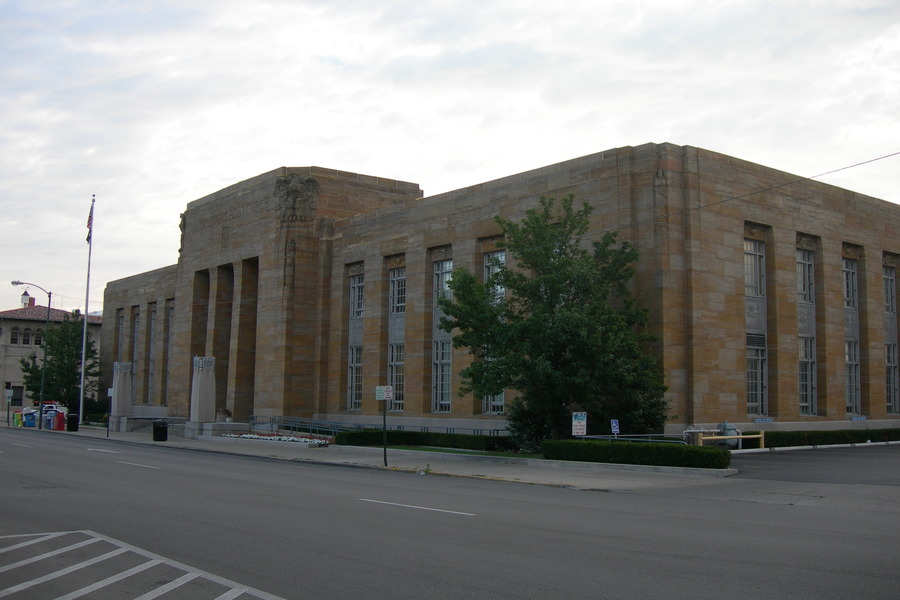Boston Bombings: Local Police and Counterterrorism Intelligence
The New York Times had a story yesterday headlined “F.B.I. Didn’t Tell Boston Police of Warning on Brother”:
Police Commissioner Edward Davis said that though some of his officers worked with the F.B.I. on a joint terrorism task force, they did not know about the Russian tip or the bureau’s subsequent inquiry, which involved an interview with Mr.
The New York Times had a story yesterday headlined “F.B.I. Didn’t Tell Boston Police of Warning on Brother”:
Police Commissioner Edward Davis said that though some of his officers worked with the F.B.I. on a joint terrorism task force, they did not know about the Russian tip or the bureau’s subsequent inquiry, which involved an interview with Mr. Tsarnaev and his parents.At one level, this is a story about information-sharing, and is consistent with long-standing and widespread complaints from local law enforcement agencies that sharing with the FBI is too one-way. It also fits with other after-the-fact reviews of post-9/11 terrorism incidents that conclude that information-sharing or dot-connecting still needs to be much better – though here it’s also about vertical coordination among levels of government rather than the more familiar concerns among horizontal coordination among federal agencies. It’s no surprise, then, to see claims like these in the article, that emphasize more information flow:
Commissioner Davis said he recognized the sensitivity of intelligence received from other countries. “But when information is out there that affects the safety of my community, I need to know that,” he said. … The committee’s chairman, Representative Michael McCaul, a Texas Republican who is a former federal counterterrorism prosecutor, said he was concerned that a decision not to share information among different agencies — widely blamed for the failure to prevent the Sept. 11, 2001, terrorist attacks — might have been a factor in the Boston bombings. “We learned over a decade ago the danger in failing to connect the dots,” Mr. McCaul said. “My fear is that the Boston bombers may have succeeded because our system failed. We can and we must do better.”There are bigger issues here, though, about the proper institutional architecture of counter-terrorism intelligence. Too many informational dots can clog the system, and a key challenge is filtering, analyzing, and interpreting the dots. What role should local governments play in this architecture? It’s easy to see here that the Boston Police have some comparative advantages over the FBI that they could have brought to bear, including human resources as well as greater local knowledge of communities and networks of relationships with them – advantages that may be important to both collecting and analyzing information. Some of these advantages flow directly from local police agencies’ public service mandate that is so much broader than the FBI’s. The more that terrorism threats include domestic, and perhaps homegrown, dangers, the more dependent the government will be on tips and observations generated locally. On the other hand, many local agencies and agents may lack federal agencies’ expertise on transnational terrorist networks as well as the necessary institutional priorities to identify, investigate, and track the most significant terrorism threats. So what is the best relationship between the feds and local agencies to account for these and other relative competencies? These issues are further complicated when placed in the context of government efforts (at multiple levels) to combat violent radicalization through community engagement. These efforts depend on developing trust in the various level of government among certain communities – religious, ethnic, etc. Those relationships of trust can also be a great source of information critical to stopping terrorist plots. They are delicate relationships, though, that can be threatened by surveillance or intelligence activities that these communities view as invasive or biased. I hope the Boston Bombings prompt a serious look at these issues, and that such examination avoids merely the common and simple refrain of more information-sharing. For those who are interested, I’ve written about these issues at length here and here, and Sam Rascoff of NYU (and formerly an NYPD official) has written about them here. For a view critical of local police intelligence activities and counterterrorism, see this report from the Brennan Center.
Matthew Waxman is a law professor at Columbia Law School, where he chairs the National Security Law Program. He also previously co-chaired the Cybersecurity Center at Columbia University's Data Science Institute, and he is Adjunct Senior Fellow for Law and Foreign Policy at the Council on Foreign Relations. He previously served in senior policy positions at the State Department, Defense Department, and National Security Council. After graduating from Yale Law School, he clerked for Judge Joel M. Flaum of the U.S. Court of Appeals and Supreme Court Justice David H. Souter.




